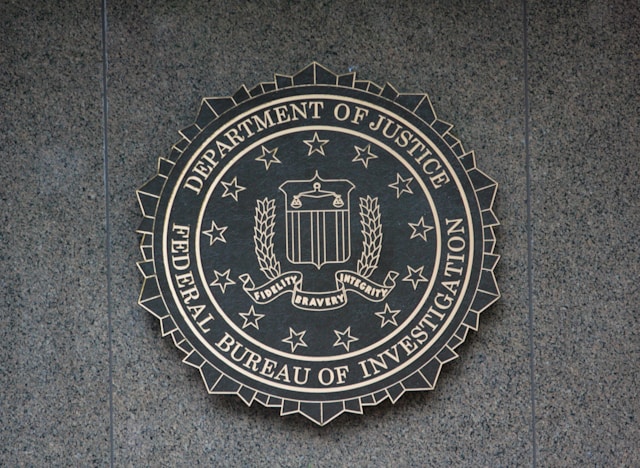
FBI
Introduction
The cryptocurrency world is buzzing after U.S. authorities charged 18 individuals and entities with market manipulation following a Federal Bureau of Investigation (FBI) sting operation. This case, involving an FBI-created token used to expose illegal wash trading, has sparked debates on the application of traditional financial laws in the crypto sector and raised potential copyright issues. Adding to the complexity, the rise of AI agents controlling crypto wallets is challenging notions of accountability. Let’s dive into the details and the legal ramifications.
What Happened? The FBI’s Sting Operation
The FBI’s operation involved creating a cryptocurrency token to lure market makers into engaging in illegal wash trading—a practice where the same security is simultaneously bought and sold to create misleading market activity or inflated demand.
According to Catherine Smirnova, co-founder of Digital & Analogue Partners, wash trading is universally illegal across financial markets, including cryptocurrencies. “Crypto assets are no exception,” she explains. Hong Kong Web3 Association co-chair Joshua Chu agrees, emphasizing that existing laws are sufficient to address such crimes: “Fraud is fraud; market manipulation is market manipulation.”
This sting marks a significant move by the FBI in tackling crypto-related crimes, but it’s not without controversy.
Copyright Controversy: Did the FBI Break the Rules?
One unexpected twist in this case involves allegations that the FBI may have violated the MIT open-source license when creating its token. The license allows broad use of software but requires proper attribution.
Charlyn Ho, managing partner at Rikka Law, points out that the FBI failed to include attribution as required by the license. While this omission could technically be seen as copyright infringement, Ho believes it’s more likely an oversight. “The intent of the MIT License is to give broad rights, and this doesn’t seem to undermine that intent,” she adds.
This incident highlights the importance of adhering to open-source licensing rules, even for federal agencies, as it could set a precedent for future cases.
Regulatory Challenges: The Gray Area of Crypto Governance
The broader implications of this case extend to global regulatory debates. While the U.S. has been aggressive in enforcing anti-market manipulation rules, the cryptocurrency industry has long called for clearer regulations.
In the European Union, frameworks like the Markets in Crypto-Assets (MiCA) regulation aim to bring clarity, but Smirnova notes the EU still struggles with its regulatory approach. “Preventive regulation often creates the opposite effect, making it harder for startups to thrive,” she says.
Meanwhile, in the U.S., lawsuits against the Securities and Exchange Commission (SEC) highlight frustrations with “regulation by enforcement.” Companies like Coinbase argue that laws should come from Congress, not executive agencies.
AI Agents and Crypto: A New Frontier for Accountability
Adding another layer of complexity, technologies like autonomous AI agents are now managing cryptocurrency wallets, raising critical questions: Who is responsible for transactions executed by AI?
Smirnova believes that even if an AI agent operates autonomously, the owner remains liable for its actions. “The system of civil law in the EU would hold the owner accountable for illegal transactions,” she explains.
However, the U.S. lacks a comprehensive federal framework for AI liability, as noted by Ho. Colorado is the only state with specific AI legislation, and most guidelines remain narrow in scope.
Chu adds that liability is often tied to the user who prompts the AI agent. “Terms and conditions usually clarify who bears the risk,” he says, emphasizing the need for regulations to address these emerging complexities.
Sexiest Man Alive: John Krasinski’s Beautiful Life and the Path to Hollywood’s Hottest Filmmaker
The Bigger Picture: Evolving Crypto and Legal Landscapes
This case demonstrates how traditional financial laws are being applied to a rapidly evolving crypto industry, forcing regulators to address unique challenges like decentralized systems, open-source software, and AI-driven technologies.
As the crypto sector matures, clarity in regulation will be crucial to balancing innovation with accountability. Whether through frameworks like MiCA in Europe or clearer legislative processes in the U.S., the need for cohesive global standards is evident.
For now, the FBI’s sting operation serves as a wake-up call for the cryptocurrency industry: the days of regulatory ambiguity are coming to an end, and players must adapt to a world where legal compliance is no longer optional.
Conclusion
The intersection of cryptocurrencies, AI, and traditional financial laws is creating a new legal frontier. Cases like this highlight the need for robust discussions around accountability, intellectual property, and market integrity. As regulators, legal experts, and the crypto community grapple with these issues, one thing is clear: the rules of the game are evolving, and staying informed is the first step to staying ahead.
